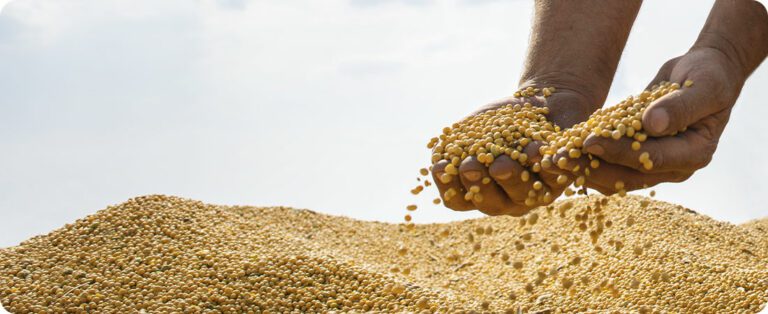The National Plan for Agroecology and Organic Production (Planapo) aims to include producers, family farmers, agrarian reform settlers, indigenous peoples and traditional peoples and communities in agroecological transition systems. Its first cycle ran from 2013-2015 and stood out as a successful experience of participatory construction in public policy, which promoted advances in the creation, articulation and adaptation of programs and actions in several states. Planapo 2016-2019 intends to intensify actions.
One of the main means of achieving this objective is the provision of Technical Assistance and Rural Extension (Ater). In this sense, 147 Ater projects have already been supported by Planapo and 153,703 families have benefited. Only in the Ater Agroecologia modality was an audience of 39,803 beneficiaries served, meeting 25% of the target.
The assertion of the experience is that agroecology provides the expansion of access conditions to healthy food and engages a new model for agriculture, based on ecologically viable production techniques and relationships that contribute to the strengthening of socially fair and inclusive structural bases for the field.
One of the institutions that implements Planapo's goals is the non-governmental organization Centro de Desenvolvimento Agroecológico Sabiá, from Recife (PE), which is a provider in four Ater Calls in the following Projects: Paths to Sustainability in the Sertão do Pajeú; in the Agreste of Pernambuco; in the Zona da Mata of Pernambuco; and Technical Assistance for Rural Women in Sertão do Pajeú. The Calls provide 3,313 farming families with technical pedagogical assistance to change their systems, with actions in agroecological and agroforestry production, promotion of food and nutritional security and access to public policies. With female audiences, Ater Mulheres works on their political empowerment and economic autonomy.
For the Center's technical pedagogical coordinator, Maria Cristina Aureliano, the importance of Planapo is existential for agroecological farmers and their organizations. “It is necessary to have public policy and technical assistance to strengthen agroecology and family farming, with specific and continuous focus for young people and women”, he declares.
The family farmer from the municipality of Bom Jardim (PE), Chirlei Barbosa, aged 32, has been producing, since childhood, a wide variety of vegetables and fruits in a sustainable way and understands the wealth that surrounds this system for the planet. “Agroecology is important for the future, as in addition to protecting animals and the soil, it feeds the population better”, defines the producer.
With her husband unemployed and little income, Chirlei sought technical assistance for an alternative. The training provided by Centro Sabiá and the support of Ater Mulheres boosted the production company's business, which today sells production through the PAA and PNAE programs and maintains a stall at the Santo Amaro fair (Recife/PE). This family's turnover rose from R$ 400 to R$1,200 in just a few months. In addition to this income, what they produce feeds the entire family.
According to the institution, food for those who opted for agroecological production increased in quality and diversity, benefiting food security and satiety for families. Another highlight for these producers is their income, which has become four times greater than for those who continued with monoculture. In a survey carried out in July 2015, the average annual net income of families who opted for agroecological production reached R$ 36,894.84 in contrast to families following conventional agriculture in the same region, who had an average annual income of R$ 8,100 from properties of the same size cultivated with sugar cane.
Despite the significant numbers, the objective of expanding the amount of resources made available to the agroecological Ater and the number of people served remains for the new policy implementation cycle. In short, the challenge of ensuring that the advances obtained through the use of participatory methodologies are internalized in Ater's mode of operation. In this sense, the creation and entry into operation of the National Agency for Technical Assistance and Rural Extension (Anater), during the first plan, represented an important structural element for its continuity, as society now has a powerful instrument for executing Ater services adapted to specific audiences – extractivists, women, young people and traditional peoples and communities.
Planapo 2016-2019 aims to provide qualified and continuous Ater for 1.868 million people. With the aim of engaging values such as gender equity, biodiversity and food security, it will be ensured that at least 50% of the public served are women and that 30% of the budget is allocated to specific activities for women.
According to Guilherme Tavira, inspector of some contracts in the Ater Agroecology modality by the Special Secretariat for Family Agriculture and Agrarian Development (Sead), 66 Ater Agroecology contracts are currently in progress, of which 12 have already reached the execution target of 50%. Considering that the contracts are valid from 2013 to 2018, the engagement of providers and target audiences can be seen.
Suiá Rocha, from the Executive Secretariat of the Interministerial Chamber of Agroecology and Organic Production (Ciapo), concludes that the certainty provided by experience is that the strengthening of Planapo means an important step towards access and improvement of the federal government's actions around agroecology and sustainable and supportive rural development.
Click here and learn more about the Plan.
Source: Portal of the Ministry of Agrarian Development












